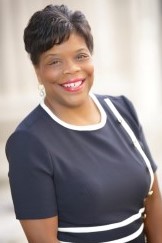At the Heart of Family Learning: Libraries are a crucial community resource for family learning
March is National Reading Month, a celebration that’s near and dear to our family learning work here at NCFL. Indeed, reading and literacy are at the very heart of why NCFL was founded in 1989; the organization’s earliest work was in rural Kentucky, providing multigenerational literacy supports to children and families. As our vision for family learning has expanded over the years, our definition of literacy has also expanded to encompass multiple literacies. But reading and early literacy remain integral to the work we do today.
Libraries are important partners in this work across the country. Last year, NCFL staff contributed a chapter to How Public Libraries Build Sustainable Communities in the 21st Century which highlights NCFL’s work alongside libraries through our Let’s Learn Together Outside (LLTO) program. LLTO brings together the power of outdoor learning and play to support early literacy acquisition for preschoolers and their caregivers. By situating this work in libraries, we’re able to leverage a trusted learning space to enable participants to build connections with library staff and become more familiar with the resources that can be accessed there.

Libraries are even more important in the context of community. As access points for possibilities, libraries serve as a third place–spaces separate from home and work that facilitate and enable conversation, connection, and community building. Libraries must continue to serve this crucial role, while also enhancing the family literacy, engagement, and leadership opportunities they provide for children and families. The work of libraries is vital, as key partners in NCFL’s efforts to achieve our vision and as irreplaceable hubs for more equitable and thriving communities.
I also can’t let this month pass without also acknowledging this month’s other major celebration: Women’s History Month. This year’s Women’s History Month theme–women who advocate for equity, diversity, and inclusion–is one that is close to my heart, as well as being an integral part of the work we do here at NCFL.
I can think of no better person to tie together National Reading Month and Women’s History Month than poet, author, and activist Maya Angelou. Even before her first book, I Know Why the Caged Bird Sings, was published in 1970, Angelou was a warrior for equity, serving as a coordinator for Dr. King’s Southern Christian Leadership Conference. She went on to publish over 30 books and dozens of poems, including my personal favorite, “Still I Rise,” an ode to the very essence of what it means to overcome, stare down adversity, and keep hope alive. Her life is one in which the power of reading and the possibility of women are forever linked. Speaking of the importance of libraries in her life, Angelou once said: “For a person who grew up in the ‘30’s and ‘40’s in the segregated South, with so many doors closed without explanation to me, libraries and books said, ‘Here I am, read me.’”
As these celebrations come to a close, I invite you to visit Wonderopolis® to discover more about Maya Angelou’s impact and explore a host of other Wonders of the Day® celebrating women’s history and libraries. Or take a trip to your local library and wander through the aisles. There are plenty of stories out there just waiting to be explored, each whispering: “Here I am, read me.”
ABOUT THE AUTHOR

A lifelong educator and national thought leader for teaching and learning, Dr. Felicia C. Smith brings decades of valuable experience to advance NCFL’s mission of working to eradicate poverty through education solutions for families. Having served in a variety of leadership roles in P-12, higher education, nonprofit, and philanthropy, her career has allowed her to experience leading systems and develop a unique vantage point of a learner’s educational trajectory from preschool to adulthood. Smith holds an Ed.D. in education leadership and administration from the University of Kentucky, and an M.A. in elementary education with an emphasis on K-12 literacy development and B.S. in elementary education from the University of Louisville.